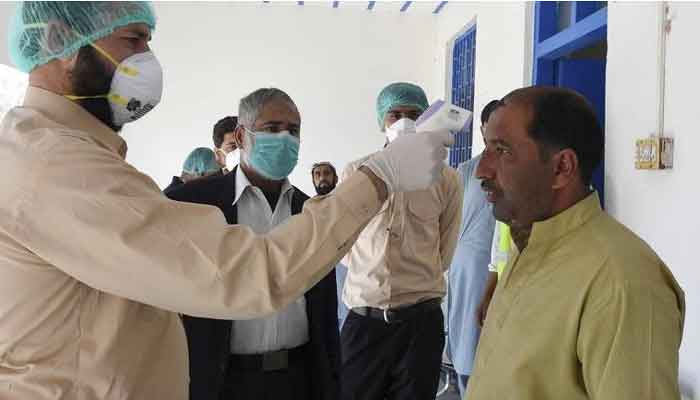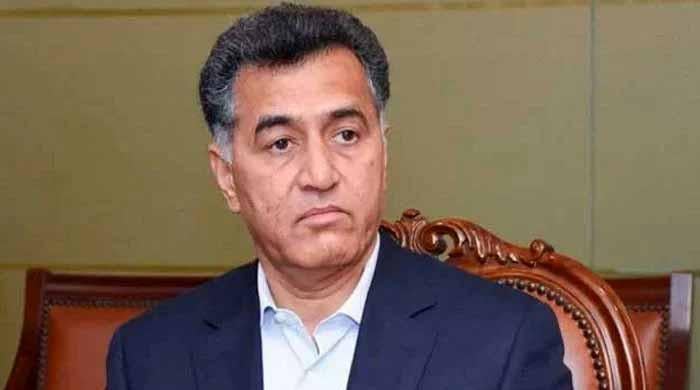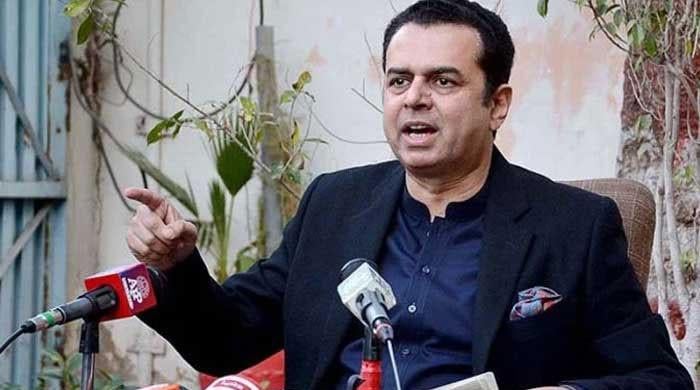Punjab begins pool testing, but lockdown ease adds to woes
Pool testing is a way to test a large number of people, even asymptomatic carriers of the virus
May 15, 2020

Punjab has started pool testing COVID-19 samples to expand its testing capacity in the coming weeks, say provincial health officials.
Pakistan’s most populous province and one with the second highest tally of coronavirus cases in the country, Punjab is conducting pool testing (also known as community testing) in the urban hotspots of the provinces.
Pool testing is a way to test a large number of people, even asymptomatic carriers of the virus, with fewer testing kits. In this method, several specimens taken from an area or a household are combined and diagnosed together.
Initiated on May 1, batches of samples were collected from Lahore, Gujrat, Gujranwala and Rawalpindi, according to the ministry of specialized healthcare in Punjab.
All four cities have been identified as the “red zone” in official documents, seen by Geo.tv, for reporting the most number of infections in the province.
Upon testing, if the pooled samples result in a combined negative, then all samples in the pool are cleared. If not, then each sample is individually tested to identify people who are infected with the disease.
For such random testing, Punjab’s health departments have divided cities into census blocks and small geographical units.
“If there are 150 homes in a block, we test every fifth house at random,” Barrister Nabeel Ahmad Awan, the secretary at the ministry of specialized healthcare tells Geo.tv. “A batch of 10 or 12 samples are then pooled and tested together.”
The results bear credence that the method seems to be successful. For instance, Barrister Ahmad said, over 20 areas in Lahore alone have been sealed where a high number of cases were detected, mostly after pool testing.
Another method employed to ramp up testing, he says, was to test in sectors where people are most exposed to the deadly virus, such as healthcare professionals, store salespersons, police officials, pharmacy store workers and the district administration officials.
Punjab, at the moment, can diagnose a total of 5,810 coronavirus samples in a single day at its 23 laboratories, of which seven are from the private sector.
“We are expanding our testing in phases,” Awan explained, “In the next 15 days our capacity will hike up to 6,500 samples a day.”
Pakistan’s health officials have come under criticism for failing to expand testing rapidly enough, even as the number of cases increases daily. As of May 15, the country has reported 37,218 cases and over 800 deaths, with over 20,000 in only last two weeks.
Yet, the overall testing remains stagnant at below 13,000 samples per day.
In a recent press briefing, Lieutenant General Muhammad Afzal, the chairman of the National Disaster Management Authority (NDMA), which has been tasked to procure medical and diagnostic equipment for all provinces, said that the country could theoretically carry out 50,000 tests in a day.
“Our job was to provide the hardware; therefore the testing machines, swabs etc, and we have done that. The provinces can easily increase their testing beyond the current average.”
But Awan in Punjab says there is a major bottleneck to expansion - money.
“To test one person, it costs more than Rs. 3,000 and I am not including overheads in this, which include electricity bills, salaries of biologists, transportation costs,” he said.
“This means the cost of testing 2,500 people is Rs10 million. And we in Punjab have carried out 151,247 tests to date. You can imagine the amount we have spent so far already.”
Further complicating testing enlargement plans, he said, was the ease in lockdown, which was announced by the federal and provincial governments on May 9. The order was given by Prime Minister Imran Khan and resulted in opening of more industries, sectors and retail outlets which were allowed to resume operations before Eid holidays.
“Now if the lockdown were to open even more then there is not much point in pool testing. Then the disease is everywhere,” the secretary added. “Then you focus on treating people, rather than testing them randomly.”
On Friday, Punjab also allowed public transport to ply on the roads as the next phase of easing the lockdown.
In such a new environment, the secretary added, health officials need to know what the requirement of testing will be. “Because testing cost money.”
Separately, a recent national debate in the country has spurred around the concept of “herd immunity” and whether the government is considering it as a strategy as it opens up the economy.
Punjab health officials, says Awan, are clear in their stance that the country should not go towards herd immunity “blindly”.
“Scientist world over have calculated that to achieve herd immunity at least 60 per cent of the population has to be infected,” the secretary said, “If we begin opening up [the lockdown] then that threshold figure can go up from 60 to 85 percent, which in turn will only increase mortality.”









